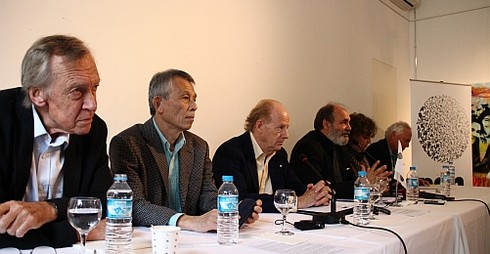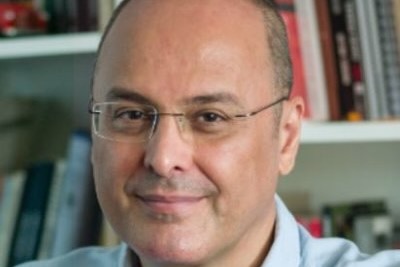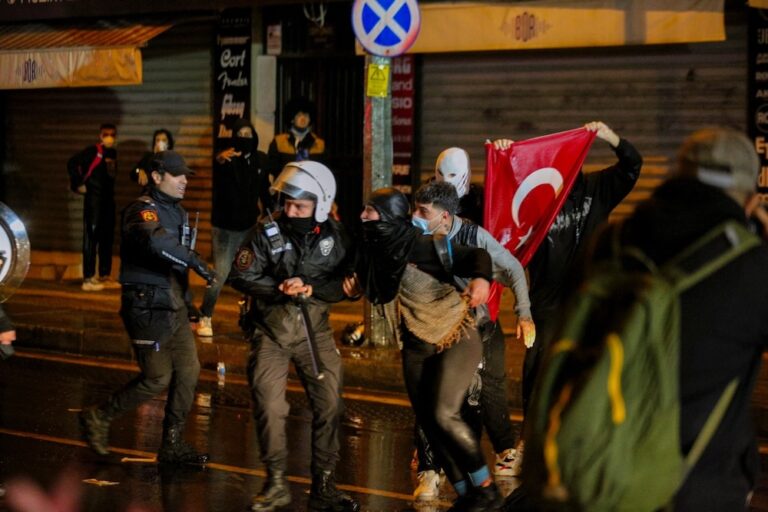PEN International calls on the Turkish government to reverse an alarming rise in the number of writers, journalists, translators and publishers imprisoned or on trial.
(WiPC/IFEX) – Istanbul, 15 November 2012 – A delegation of writers from PEN International today called on the government of Turkey to take “quick and concrete action” to reverse an alarming rise in the number of writers, journalists, translators and publishers who are in prison or on trial in the country. Speaking at a press conference today in Istanbul, PEN International president John Ralston Saul warned that positive political and economic developments are being overshadowed by concerns about the freedom to write in Turkey.
“We recognize that Turkey has seen important gains in democratization and civil and political rights in recent years, and we believe the momentum for reform is ongoing,” Saul said. “But for our many colleagues currently in prison or on trial – including members of PEN Turkey – processes and promises are no consolation. We are asking the government of Turkey to act now to ensure that no-one is being penalized for practising the right to peaceful freedom of expression, and to release all who may be held in violation of that right.”
Joining Saul were PEN members from Japan, Switzerland, Lebanon, the United States, Norway, Canada and the United Kingdom, part of a 20-member delegation that he said “conveys the seriousness and urgency of PEN’s concern over the rising tide of trials of their colleagues in Turkey.”
Today’s press conference followed meetings in Ankara this week with President Abdullah Gül and Minister for European Union Affairs Egemen Bagis. The delegation pressed for reforms to Turkey’s Anti-Terror Law, to clearly distinguish between incitement to violence and the expression of non-violent, if controversial, ideas, and an end to lengthy pre-trial detentions and legal proceedings that can drag on for years. They also presented the president and the minister with a list of key cases of writers, journalists, translators and publishers who are in detention, on trial or facing prosecution in violation of their right to freedom of expression. PEN will be submitting further information to the government regarding these cases.
The PEN delegation also met with Öztürk Türkdogan, president of the Human Rights Association, who underlined the organisation’s concerns with the deteriorating situation for freedom of expression in Turkey.
At today’s news conference, delegation member and PEN Turkey president Tarik Günersel spoke movingly about three cases emblematic of the serious situation in Turkey: the human rights lawyer Muharrem Erbey, in pre-trial detention for almost three years; translator Ayse Berktay, in detention for one year and accused of being the “international advocate” of the banned organization KCK; and journalist Mustafa Balbay, in prison since 2009, facing charges ranging from membership in an unlawful organization to attempting to provoke an armed uprising. All of them, Günersel insisted, have in fact been detained for peaceful expression. These are just three of many cases on PEN’s list, Günersel emphasized, noting that in every case the rights violation extends to family and friends as well, all of whom endure uncertainty, financial hardship and the stigma of being branded terrorists or criminals.
After the news conference, the international delegation was to join members of PEN Turkey and writers from around the world for an afternoon of multilingual readings commemorating writers at risk. For more than 30 years, 15 November has been designated as the Day of the Imprisoned Writer in PEN centres around the World, a day on which PEN members honour their imprisoned, threatened and murdered colleagues.
“It is unfortunate that at this event the texts we will be reading include the writings of so many of our colleagues from this country,” Saul said at the press conference. “It is our sincere hope that at this time next year we will instead be able to celebrate their release and the end of these draining and damaging legal proceedings.”
Read PEN International President John Ralston Saul’s statement



